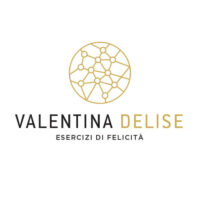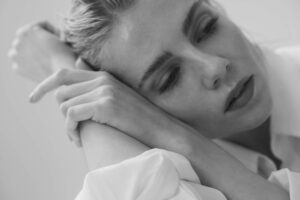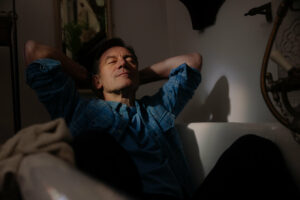She’s been speaking loud, using her voice to raise awareness on the world of modeling and its (sometimes questionable) mechanisms, she’s been using emotions to work and work the hardest she can, she is a trailblazer in the fashion industry, she’s been walking the most important runaways and shining bright at the most iconic fashion shows, she is strong and she has no fear to show her vulnerability, she’s not afraid to say “No”. Young models can feel safer because of her and what she’s been doing with and for them. She is Coco Rocha, our November Cover Story, and with her we spoke about Coco Rocha Model Camp, brotherhood and sisterhood, diversity and being a hard worker in a place where she can unapologetically speak her mind and feel free to stop being a people pleaser.
It was an honor for me to have the chance to speak with Coco, understanding that what is important is to feel “allowed to be you”, and that “it is okay to have your own opinions, it is okay to do it your way, you should be proud of yourself”.
How did you first fall in love with the world of fashion?
It’s funny because when I was younger, I never even paid attention to fashion, nor to my own style or point of view. I was a dancer, so my whole life was just dance. Probably because I didn’t grow up with social media, you would have to buy magazines and really be involved to care about this industry. I would not say that my love for fashion started early on, I didn’t have even a sense of who was who and which magazines were important.
Even during the first few years of my career I was taking it as an opportunity, I thought “Let’s try this thing out and see where it goes”. I was a very hard worker, I knew how to perform, but I didn’t dive in to inform myself of the industry until a few years in, when I thought that maybe that was really going to be my career; I thought, “Maybe I do like it, maybe I love clothes, maybe I love makeup”. So, I can’t really recall a date, or time, or article I read, but it was overtime realizing that this is my new version of performing, and that it was the reason why I started to love fashion.
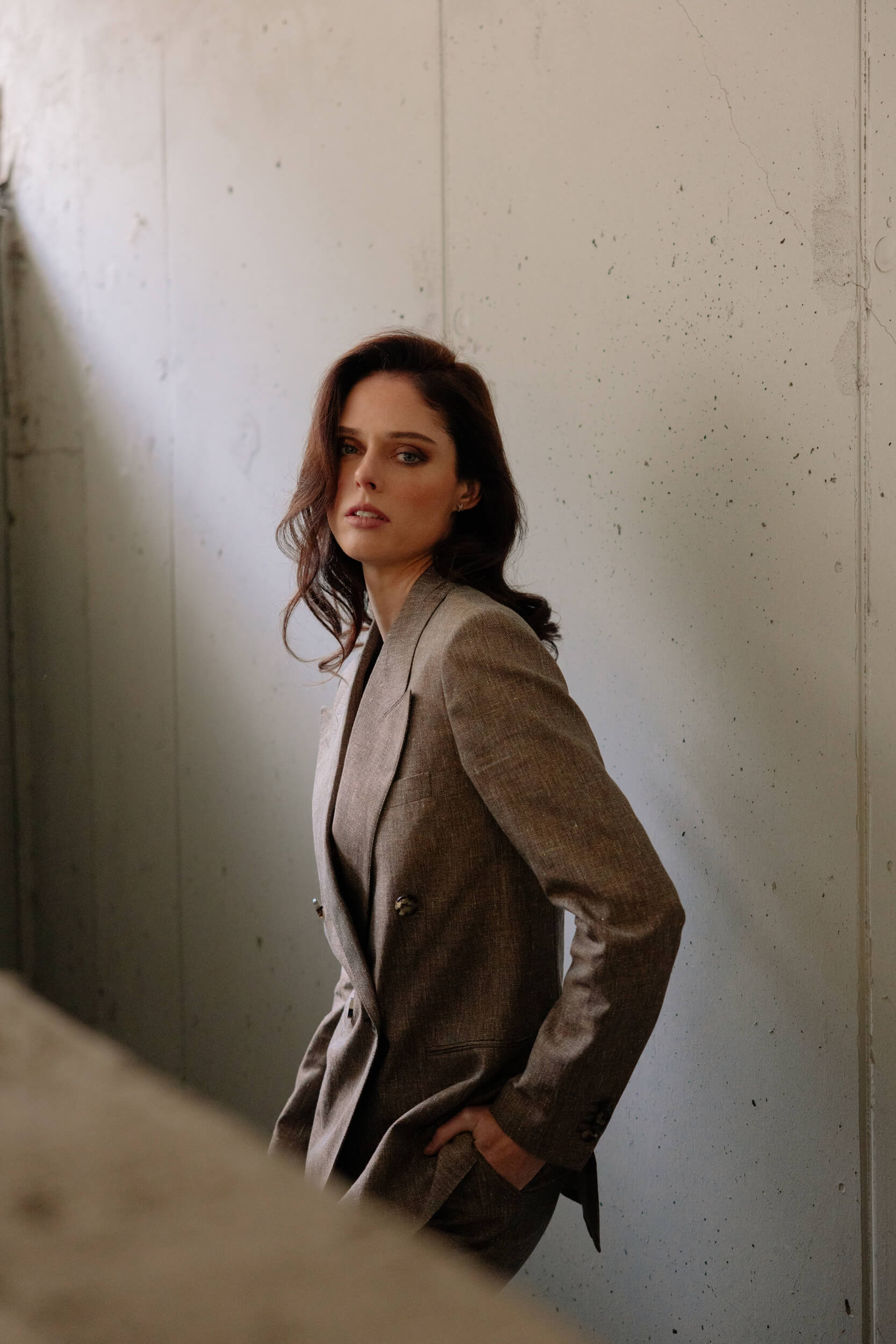
In your life and in your work, when do you feel the most creative?
It’s usually the team that I’m around. You can be in a room full of people and feel like it’s a boring day, nothing really interesting is happening and no one’s really trying to do their jobs correctly, and other times you enter a room or a studio and think, “Wow, everyone’s so excited, everyone has a point of view, and we’re prompt and ready to do this thing”. So, honestly, it has to be an awesome team, and not because it’s the most famous or the most well-known magazines; people who genuinely love what they do usually would be the best type of photoshoots or even runway shows that I’ve ever experienced. When I can get into a room where people don’t come with an ego, thinking that their point of view is more important than everyone else’s, but where everyone collectively does their job amazingly, understanding that we need one another, those are usually jobs where I work the hardest and want to be impressed with everything that we’ve done together.
In the model world, we’re the canvas, so you can have the hairdresser, the makeup artist, the stylist, the producers, the art directors, the photographers, but it’s up to us to make their craft come to life. Those people who work hard on those days are the people I want to work extra hard for, so they can see that what they’ve done is amazing.
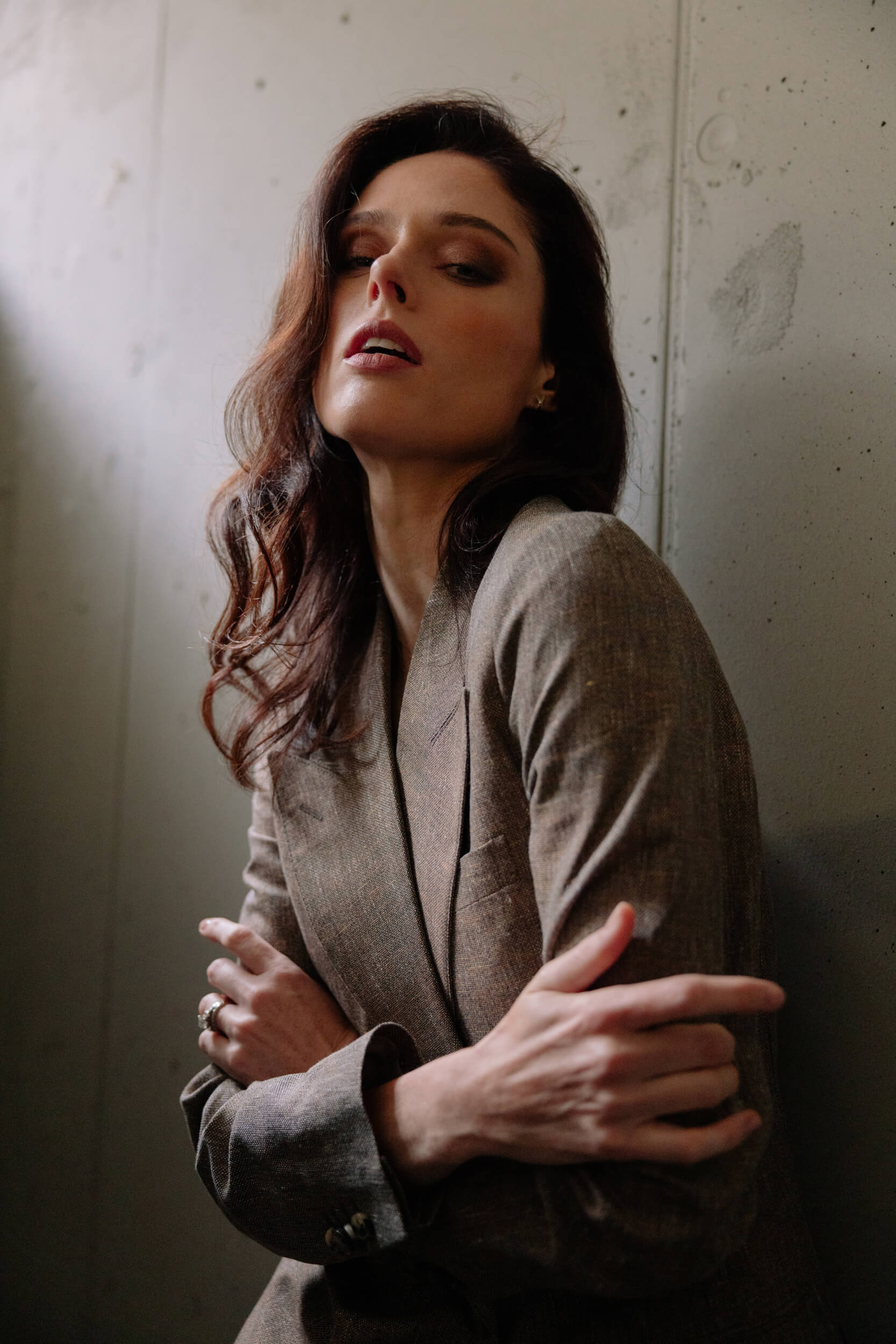
During photoshoots, how do space and time transform? Do you feel like you, yourself, transform, somehow?
An important thing for most models is to do a little research or homework to understand how the photographers like to take photos, what their aesthetic is, how they like to create images; when I come to a set and there’s a theme or I’m supposed to create a character, it’s important to know that beforehand, I think, so that’ I’m slightly prepared on who I’m supposed to be on that shoot because I’m not supposed to play me, you know? Usually, when you do an editorial, it isn’t about you: you’re wearing the makeup, the hair, the clothing, and you’re supposed to be somebody. When any creative artist is doing their job, when they go on the stage and sing, when they’re creating a movie scene, they’re playing people, and I really do think that models have the same opportunity to be creative and play different people, different expressions.
I think it’s very important to get the photographer’s feedback and ask if I’m doing it right, if it’s what they’re looking for. I think that in this day and age, because of social media and the screens that are right there for us to see all of our images, people lose the sense of trying a new idea – if they don’t like it right there and then, they go back to what works usually. Social media models are so nervous to look like a fool, to not look like themselves that they don’t take risks and chances like they used to. When photographers used film, you couldn’t see what they were doing, so you just took a chance, and I think I still work that way: I’m just going to shoot, and if you love it, you love it, if you hate it, you hate it. I have a few criteria of how I like people to shoot, making sure my morals and values stay intact, but other than that, it’s up to you, if you love those photos, to go ahead with them because it’s your job.
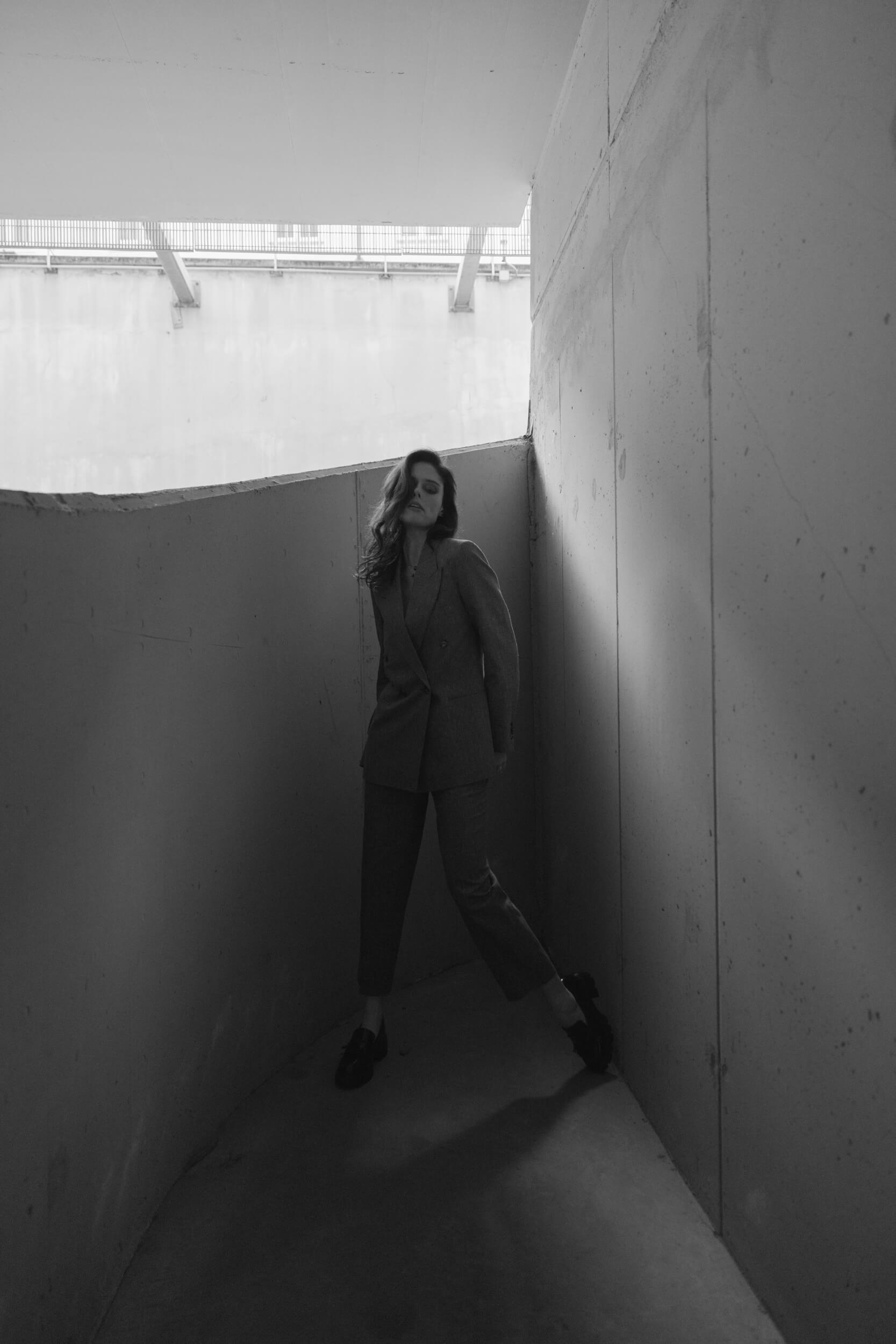
“When photographers used film, you couldn’t see what they were doing, so you just took a chance, and I think I still work that way”
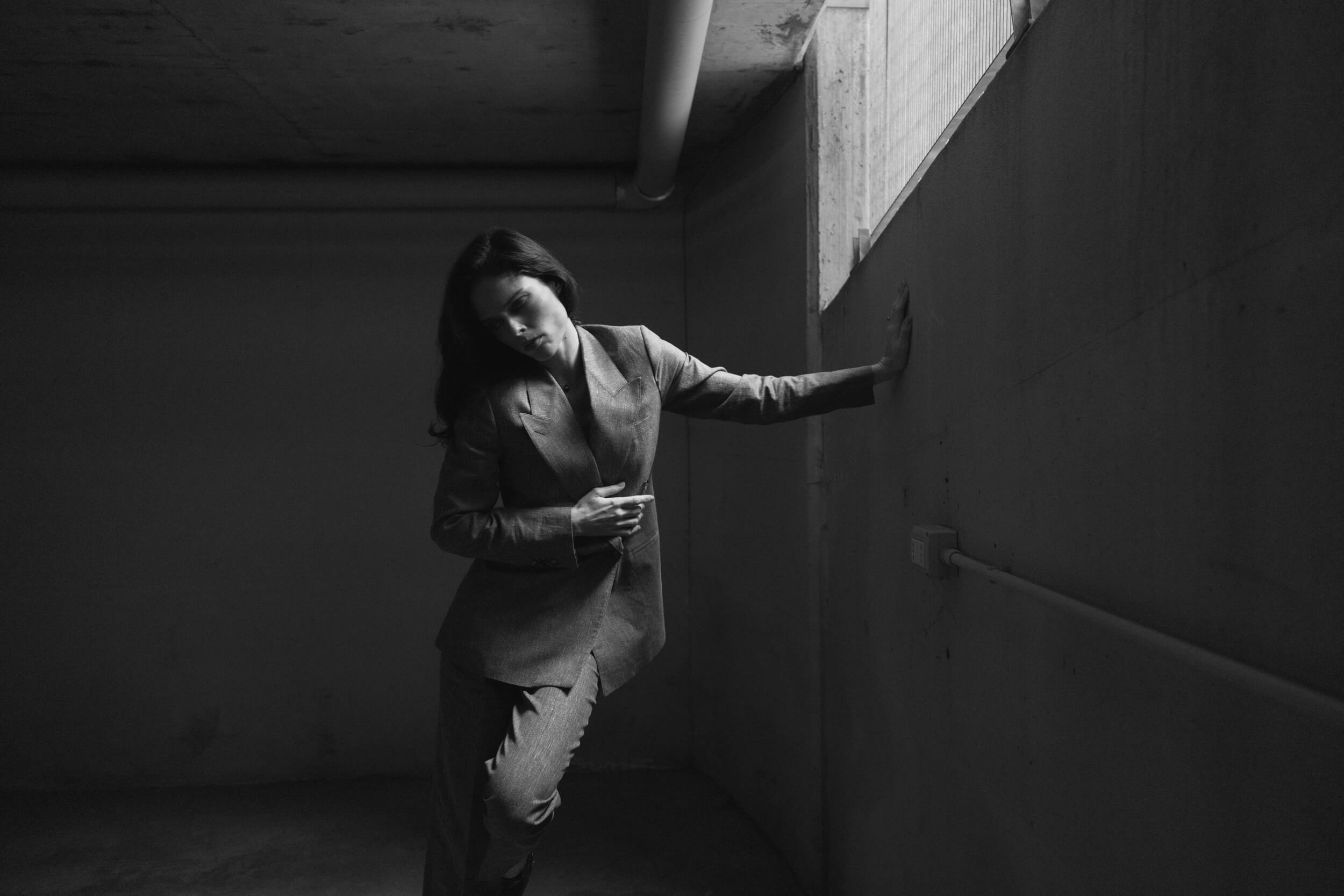
As you said earlier, you play different kinds of characters, and maybe I’m wrong but I think that while interpreting someone else you also discover something new about yourself. What’s the latest thing you discovered about yourself?
That’s an awesome question. I’m thinking about just using emotions; people usually say, “You express so well, you emote differently”, but I don’t know sometimes if I actually feel those feelings. I remember doing a shoot over a year ago where the photographer said, “I just need you to be sad”, and I asked, “Do you want me to cry?”, and he thought that was a strange thing to say for a model because models just look sad and don’t make tears, but I did it, I cried on that set. The feedback I got was people in the room saying, “I’d never seen that; I didn’t know it was possible”.
I think that most times, if you say “models”, everyone has a certain kind of expectation, but I know how to go further; anyway, to prove that sometimes may be difficult, and this was one of those moments when the expectation was there and I knew I was capable of giving more. In fact, the feedback was: “why don’t model work this way?”. It was such a genuine feeling and I had to feel horrible the whole day, cry all day long, but I knew it was possible and I just loved that I had great feedback from something like that, so it made me realize that what’s the point in censuring myself, which I don’t think I do on shoots? I can be way more vulnerable, I think of a lot more emotions than the ones that are typically borderline, always beautiful. This was tears and snot, and yet we had the image. Again, I don’t know if it’s a mind-blowing great team point, but it was a shoot that I do look back at.
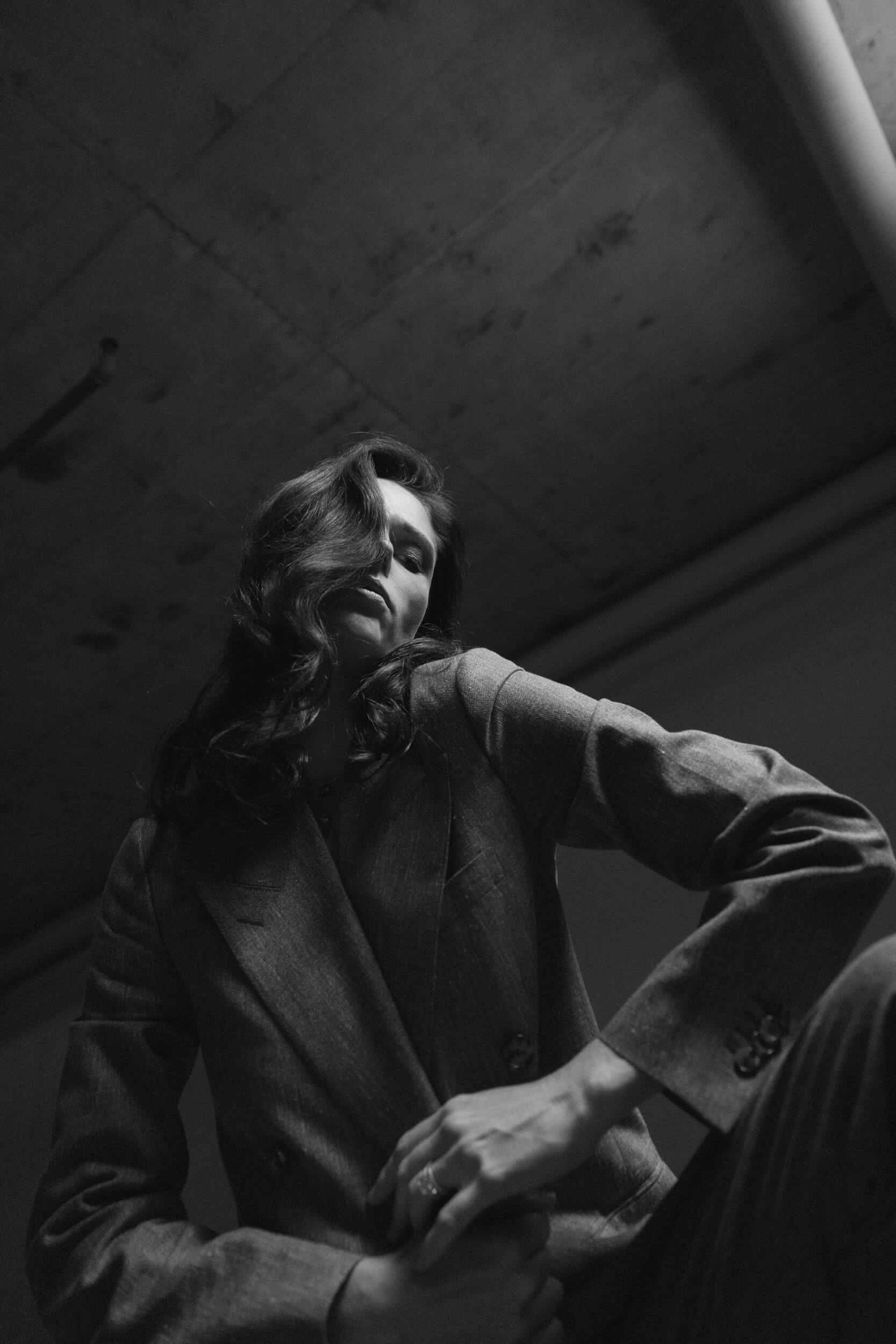
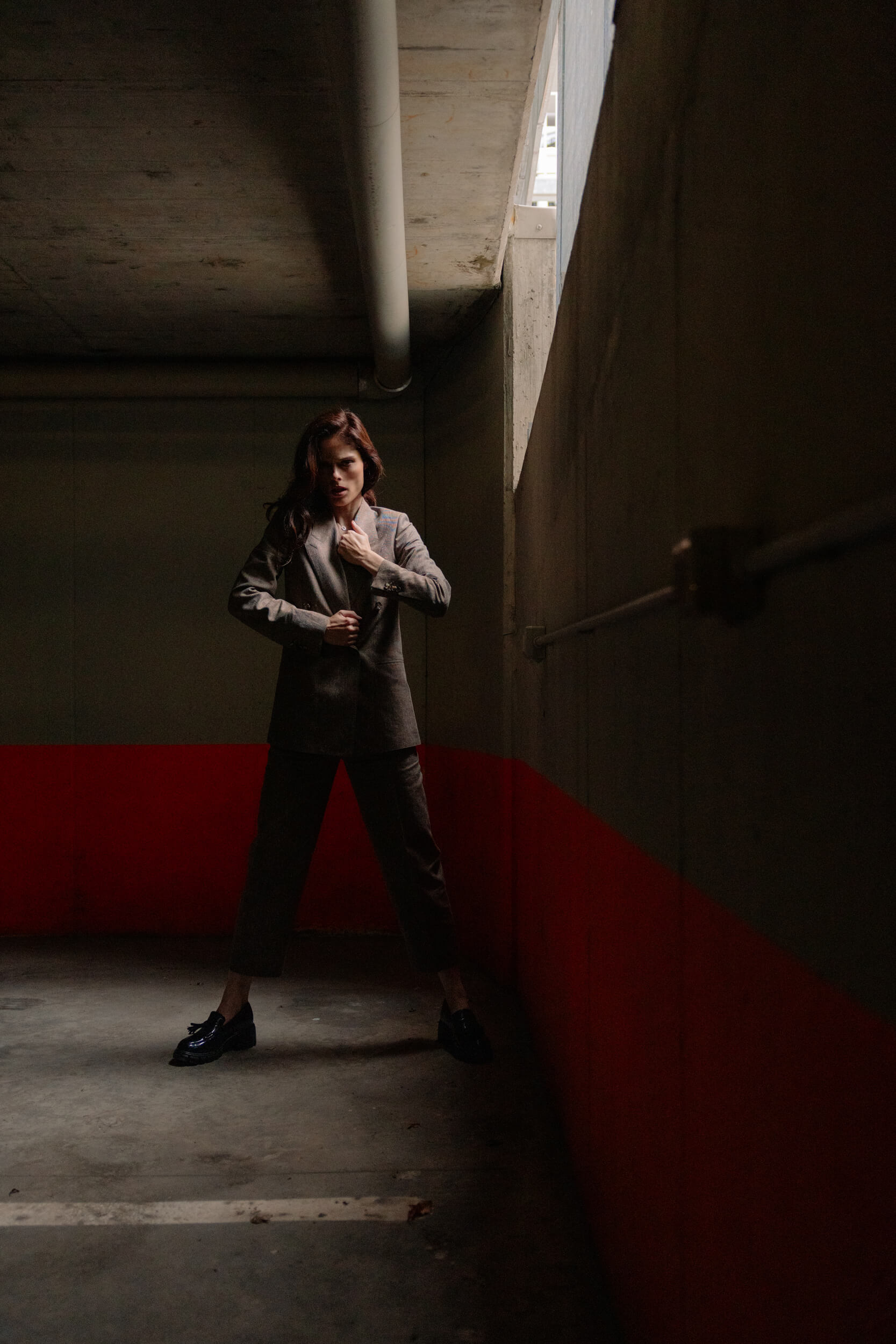
You have fought so much to revolutionize the world of fashion, also increasing protection for young models. What’s the next change you would like to see or to fight for in this moment?
That’s a struggle of an answer. We always want to do better, I would love for young models to unite together, as we see the actors uniting together right now to protest to safeguard their rights; young models don’t have that, and we’ve been trying to have it for years, even before my generation, and it’s not something that we collectively come together to achieve. Instead of it being trendy, I would love for our world to be diverse, that we actually believe in diversity. It’s not that everyone struggles with that, but it’s interesting that if we don’t talk about things, it’s not a problem anymore. It’s kind of frustrating that we don’t learn from our mistakes, sometimes we just talk about it and then move on very quickly, but that’s a generalization of the industry. It’s not so much that I think models need more protection, it’s just that as an industry I think we could do so much better. Now we are probably going to pay a lot of attention to the film industry, right? We’re going to see what plays out with them in AI and how it’s not going to go away, AI, and what will the future of the industry be if we don’t work together now. Who knows?
Personally, I try my hardest to help the industry by putting the laws together with other fellow models, finding ways to use my voice, but it was only until I started to work one-on-one with models: Coco Rocha Model Camp is in its fifth year, we have trained over 4000 models, and bit by bit it’s nice to see that they are collectively working, on their own or together, to work on their own careers, to protect one another, and it’s a beautiful brotherhood/sisterhood that, although slowly, because 4000 is a lot but it’s not everybody, has been the best solution. I’ve heard agencies say they’re going to start training their models with some sort of education where they understand the program of being a model, that is exactly what we need. I think we just need more understanding of what the models need so that they can have better careers, to hopefully help each other, to hopefully not have a future where we don’t exist anymore. But all these things are just up in the air, and we’re trying to see what’s going to fall first.
You’re an advocate for diversity and mental health, I’ve seen what you’ve done and I think it’s really amazing. You’ve revolutionized the industry, I believe. Do you think that there should be a stronger connection between fashion and mental health?
Yeah. We have a big responsibility to make sure that what we sell and what showcases beauty doesn’t strain on anyone, that no one is so frustrated by what they see thinking that they can’t ever experience that or be that. So, yeah, that does mess with people’s mental health. That can be a lot, and from my personal experience as a model, we didn’t talk about mental health until maybe 8 years ago; all those years before, it was more like, “You’re lucky that you have this career, so whatever you’re dealing with, just suck it up and move on because no one else is going to have this career that you have, so don’t be ungrateful”. There were definitely lows in my career, as for many other models, and lovely highs for sure, but mental health was not a discussion to my family, to my friends, and even to models – we discussed that we were sad, but we didn’t really have chats like you can nowadays. This industry is supposed to be a little bit a fantasy, and sometimes people take a fantasy and think it’s reality (social media does the same thing), so we definitely have a responsibility that people don’t cross that line and think that this is life and they have to be that or it’s nothing.
My husband and I work together in this industry and we have rules, for example we do not discuss about our body shape and size in a negative way, and if we discuss about people’s aesthetics and looks it is not in a negative way, we don’t use the word “ugly”, we’re not allowed to use the word “fat”, we find better words, more thoughtful words to describe things. We have three kids, and I don’t need them to think that mommy and daddy care so much about outer beauty because what I really care about is the art of modeling and that the industry is full of creative people, and I need my kids to know that. And just like my kids, I know there must be other little kids and other people questioning what the industry really stands for.
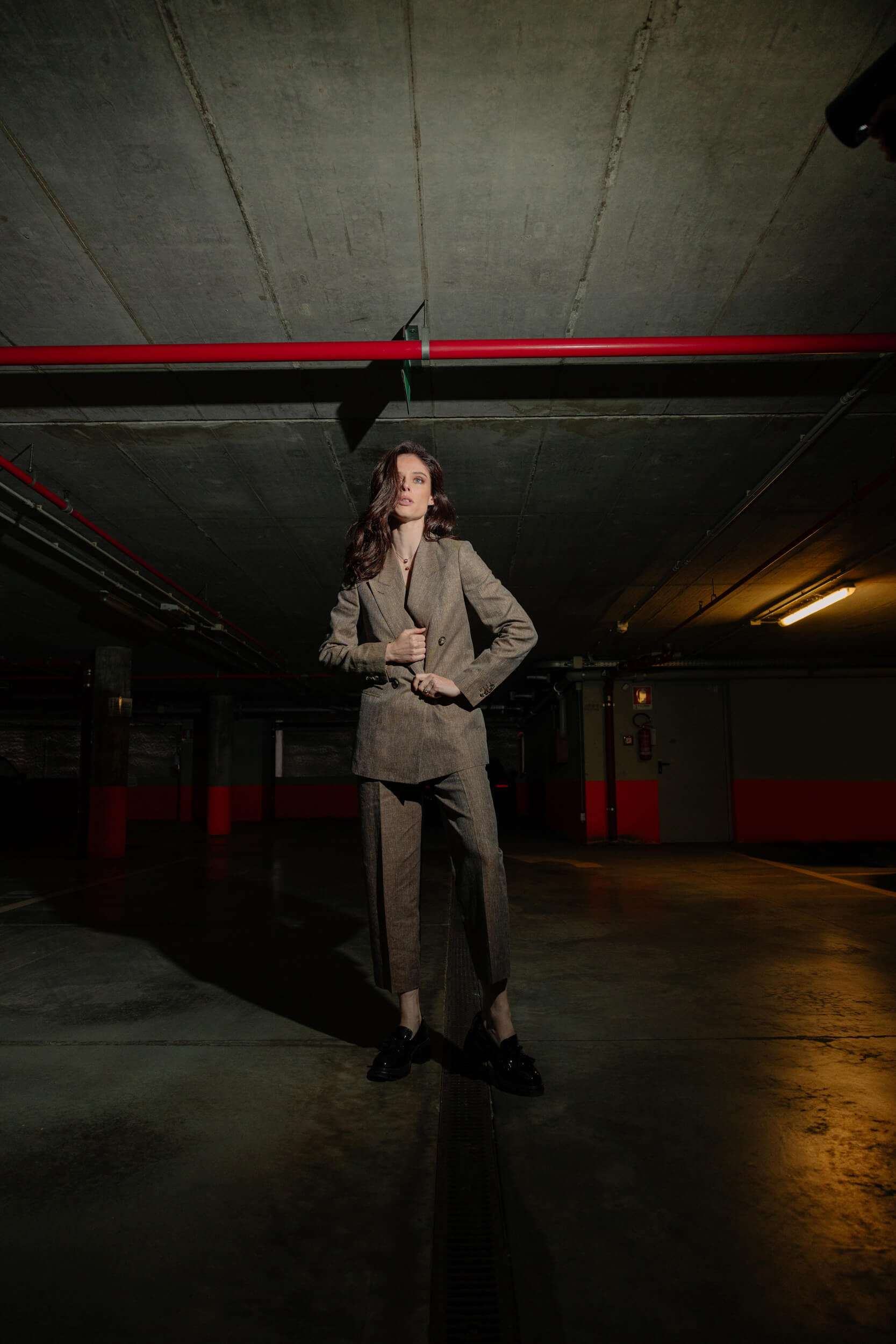
What does it mean to you to feel safe?
It’s when my voice is heard, when my opinions matter. I think that some people have confused the idea that a model is a canvas; if you are the canvas, you allow people to paint however they want to express themselves, and you go ahead, you allow it because it’s not you, but you’re playing a character, like I said before. Anyway, in theory, of course it’s me, whatever I’m putting on it still is me that represents the subject of the photoshoot, whatever photo is created, my name is on it. Again, I come from a generation where you don’t have an opinion, you’re not supposed to have any say, and you allow anything creatively, even if you don’t agree, to a point now, where your voice does matter, your opinions do matter, and you get to speak up. So, a lot of models close to those generations still have a hard time expressing their feelings because they were trained over and over that that’s not how it works. Personally, there were some shoots I did where I felt very uncomfortable and said, “Either I do it my way or I just don’t do it”. So, I’ve always felt safe when people would say, “Of course you can do it your way, you let us create so much on you, of course you can have a bit of ownership when it comes to what you want and don’t want”. And it’s not because I don’t like the color red on my lips or blue as a dress, it’s about my morals and values: if you cross that line, then I don’t feel safe, but if you respect that line, I’m excited to work with you over and over.
You also travel a lot for work, but what’s “home” for you?
My home is just with my kids.
I don’t need to be in the “box” called home if they travel with me, I’m totally fine just being with them. It’s frustrating because my two oldest children now are in school, so this year we didn’t get to travel with them and that was a lot for me. But as long as they’re with me, home is where they are. Maybe it’s because early on as a model, I felt slightly alone, but you can ask any model, when people say they wish they had our life and our career, you will always have to answer that it’s a very lonely career, even if you’re in a room full of people singing your praises, telling you you’re great, you’re still quite alone. So, it’s amazing that I don’t feel alone anymore because I’ve surrounded myself with my family and friends: when I travel, that’s home.
How did you cope with loneliness, at the beginning of your career? How did you overcome it?
The moment you stop feeling that way doesn’t come with age, it doesn’t come with having a long career. Personally, it stopped being an issue when I started dating the man that now’s my husband, and not focusing on career all the time. I started a new chapter where I was focusing on a relationship, and that was a turning point for me in ever feeling lonely. I had a model come to Model Camp to talk about her experience, and she was someone very well-known and well-respected, and models wish they could have their career; she said, “You know what I still deal with today? I’m so lonely, and I only wish that could go away”. So, it means that even with such a career, that feeling cannot go away unless you prioritize what is most important. For a lot of young models, the most important thing is career, and I get it, but you will get to a point where that will not be fulfilling anymore, and I know I really felt fulfilled with everything when I started to prioritize my relationships, and of course once I had kids, they became number one priority. I am more tired but happier being a mom and a wife, I can travel as much as I need to but as long as they’re with me, and I don’t have those feelings anymore.
“I really felt fulfilled with everything when I started to prioritize my relationships”
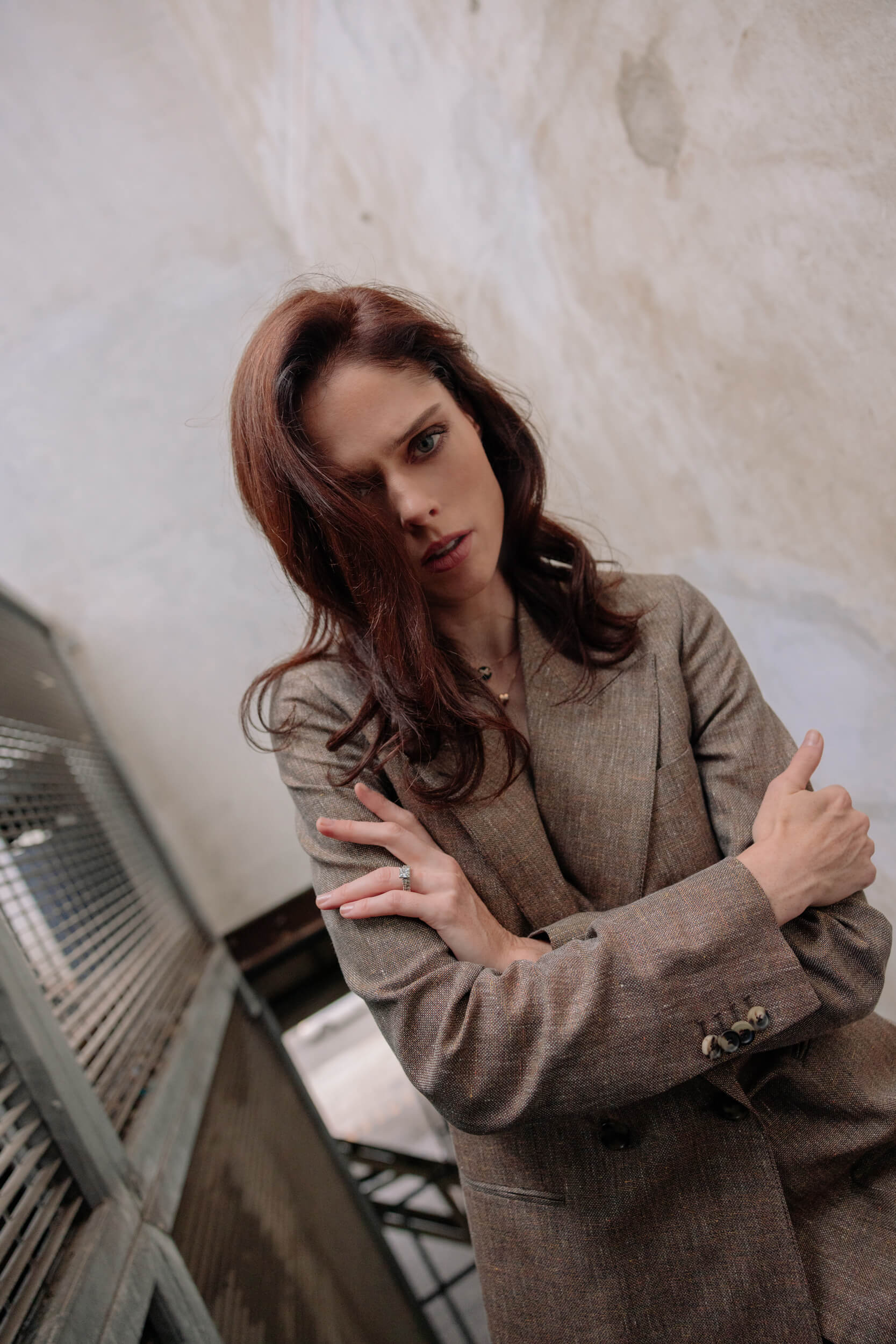
What’s the bravest thing you’ve ever done?
Birthing children [laughs].
I did natural birth, so I kind of think I’ve been a superwoman. I’m one of those women who thinks they’ve done so many cool things in their life and then you have a kid and genuinely can’t believe that your body has done something as amazing as that. It maybe is a boring answer, but I truly couldn’t believe what my body could do, and I was lucky enough to do it three times. It’s funny because when I was having the second and third child, I was very scared: with the first, you don’t know anything, but then, even if you become a pro, you still get a little nervous. Anyway, I’m one of those people who wants to get to the scary part so that I can say that I did something, and I don’t hold back. Personally, I wanted to say that I did it naturally, I didn’t want any medicine, I wanted to do it that way for personal reasons, and I did. I did something that’s scary, but how many women are there who’ve done something like that? So many, and any time something is challenging, I look at how many other people have done it and convince myself that I’m capable as well; it’s the same when it comes to my career and anything I do.
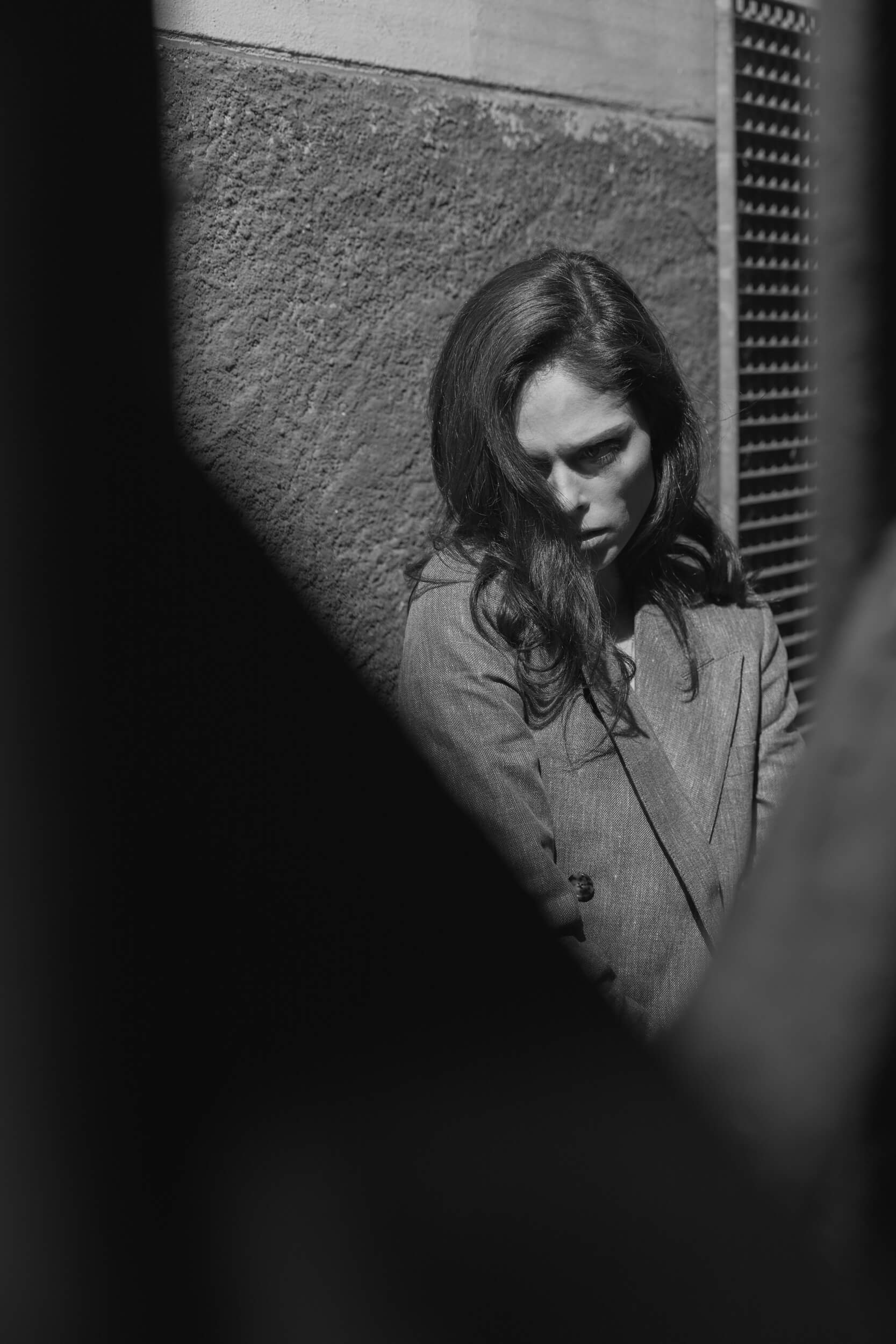
How do you live your relationship with your body and how has it changed over time?
Early me, just before modeling, never thought of it because I was just trained to dance. Dance was not focusing on your body, but only on your technique. Then I got into an industry where people tell you you’re beautiful, tall, skinny, gorgeous, and you’re like, “Wow, it’s a nice feeling to hear stuff like that”. However, to hear different things later like “You’re gaining weight, you don’t look like you used, you need to do better”, that was probably the time when I started noticing my body and anything that was imperfect to people, when people would point stuff out. That was probably the lowest time because I’m a people pleaser, and back then I wanted to please, so I started going to the gym, eating differently, counting my calories, getting a trainer; I did whatever they said to make sure I was the best version for whoever was speaking and for the industry. But that didn’t please anyone, and wasn’t pleasing me, I’m sure.
Fast-forward to dating a boy and getting an outsider’s perspective saying, “You’re gorgeous, I’m not sure what you’re picking at and why you care so much, you’re good enough”, and it sounds like a rom-com or cheesy novel, but it definitely was something that I needed to hear. It was not okay that people were saying those things and after realizing that, I stopped caring as much, and I don’t think I’ve had a low like that ever again, I can 100% say that for 14 years I have never been worried about “Do I fit the clothes?” and things like that. Now, I’m probably going to hear that I’m too old, but I can’t fix that, you know? I can’t change my age. You have to accept who you are and be proud of who you are. It’s fine to wish some things were different, but to complain about yourself is wrong, I don’t want to hear my kids complain about how they look and I lead by example. I don’t have time for stuff like that anymore, and who has? There are other fun and eventful things other than work. But I know too many models, young, of my generation and older, who still focus on their shape and size and how they look, and it is the saddest thing to see because it is the super power that everyone needs. Again, at Model Camp, that’s what we train, it isn’t all about modeling: people leave on day 4 truthfully feeling different. What I usually tell them is: “All you’re feeling is a little more confident, you have now been told you’re allowed to be you, it is okay to have your own opinions, it is okay to do it your way, you should be proud of yourself“.
With that formula, most people feel a lot better, and that’s all that Model Camp is about, making people feel a little bit better, a little wiser, and learn a little pose on runaway, but the ultimate goal is for everyone to just feel good about themselves.
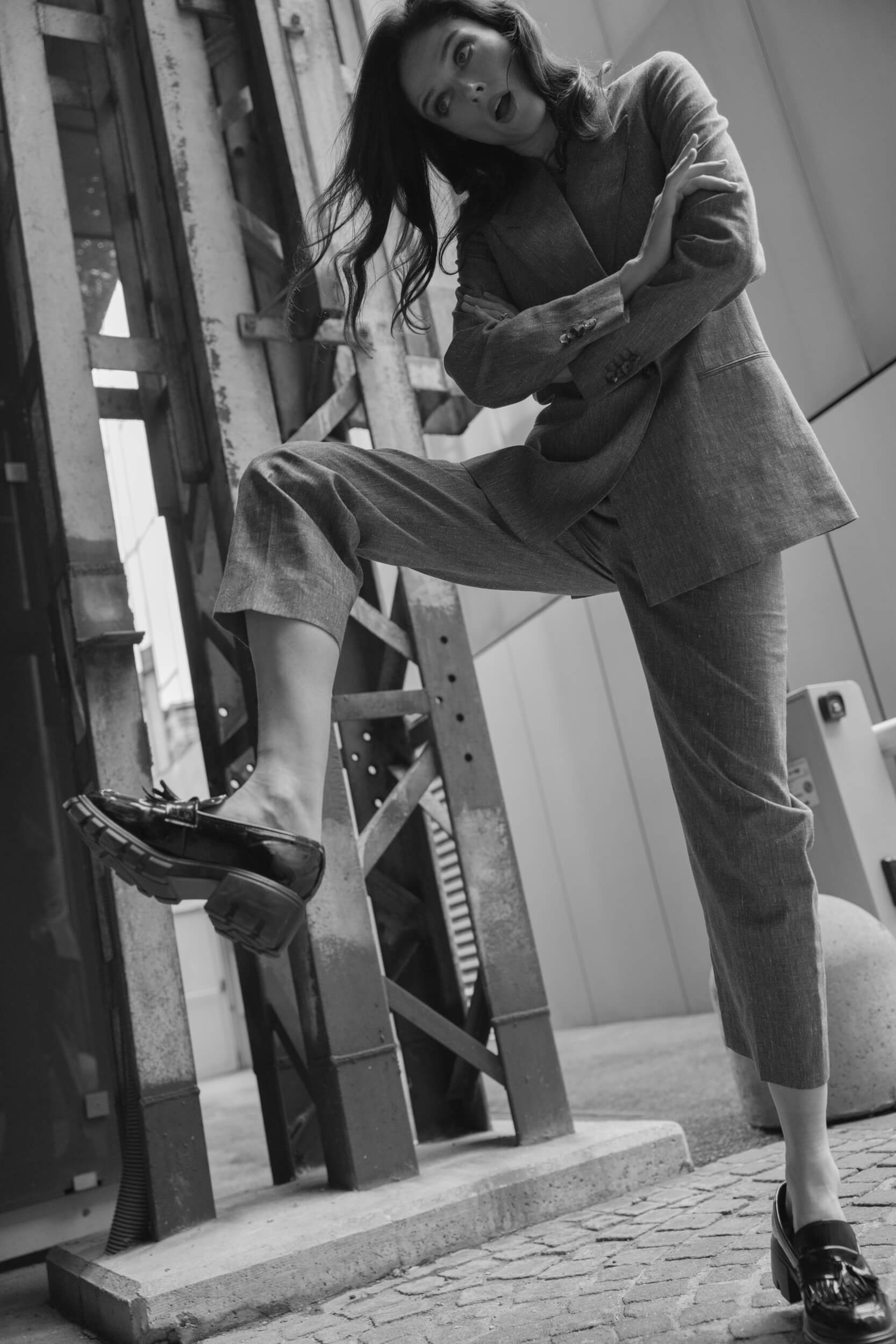
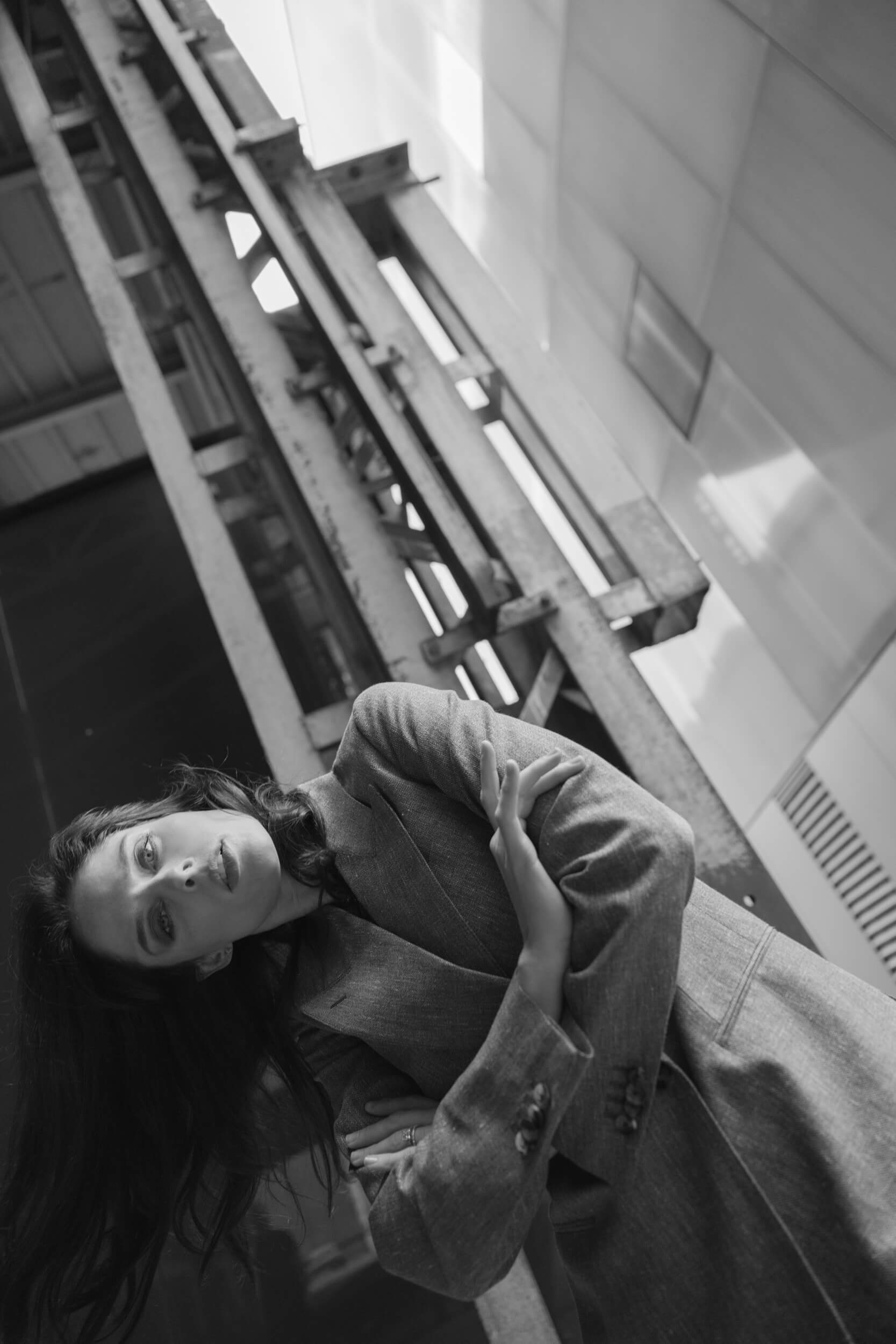
What you’re saying is making even me, and I’m not a model, feel better: I think if there were more people talking like you’re talking to me right now, the world would be a better place. Everyone struggles with something, I for example, grew up identifying myself with something that isn’t real, as I’ve always been in love with the world of fashion and beauty. Now, that I’m working in it, I’m committed to discussing mental health as much as possible, talk about what really matters, and I think what you’re saying is so powerful, not only as a model and for models, but as a human being.
Thank you. The course I’ve taught people is a life course that some of them missed when they were kids, they lost the chapter somewhere, and now they’re reminding themselves about all these things. It’s personal experiences that bring this course together: if I’d had a perfect career or made no mistakes, if I’d never had these whoopsies in my career, we’d never had Model Camp. I look at my bad moments and think that if they never happened, we would not be here helping other models and other people in the industry. The industry needs to reflect on how they can help the future generation, or rather the new industry. We could keep copying and pasting, we could keep doing things traditional, or we could start right now and, as we like to say, rebrand, rethink how we could make this a better industry.
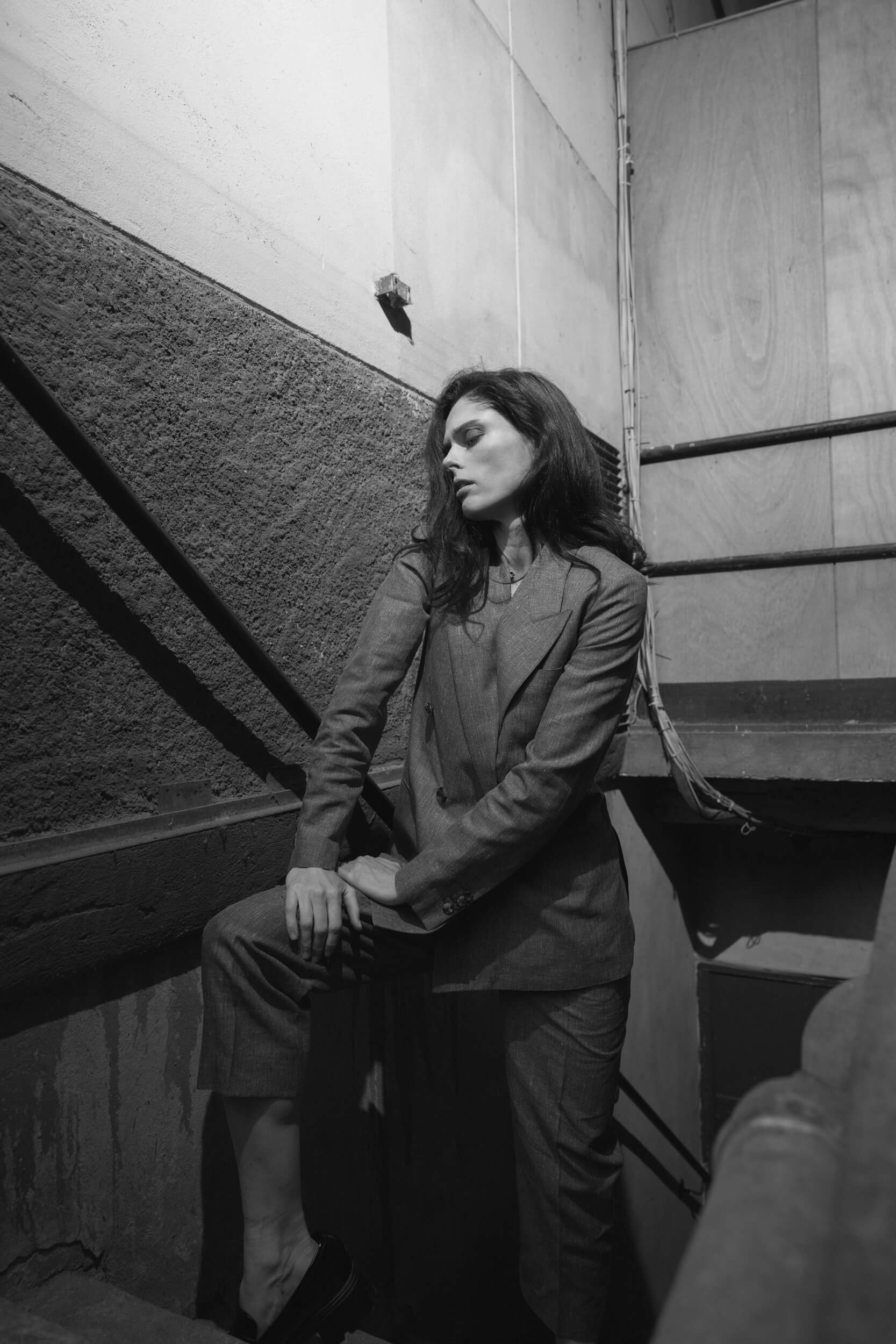
“if I’d never had these whoopsies in my career, we’d never had Model Camp.”
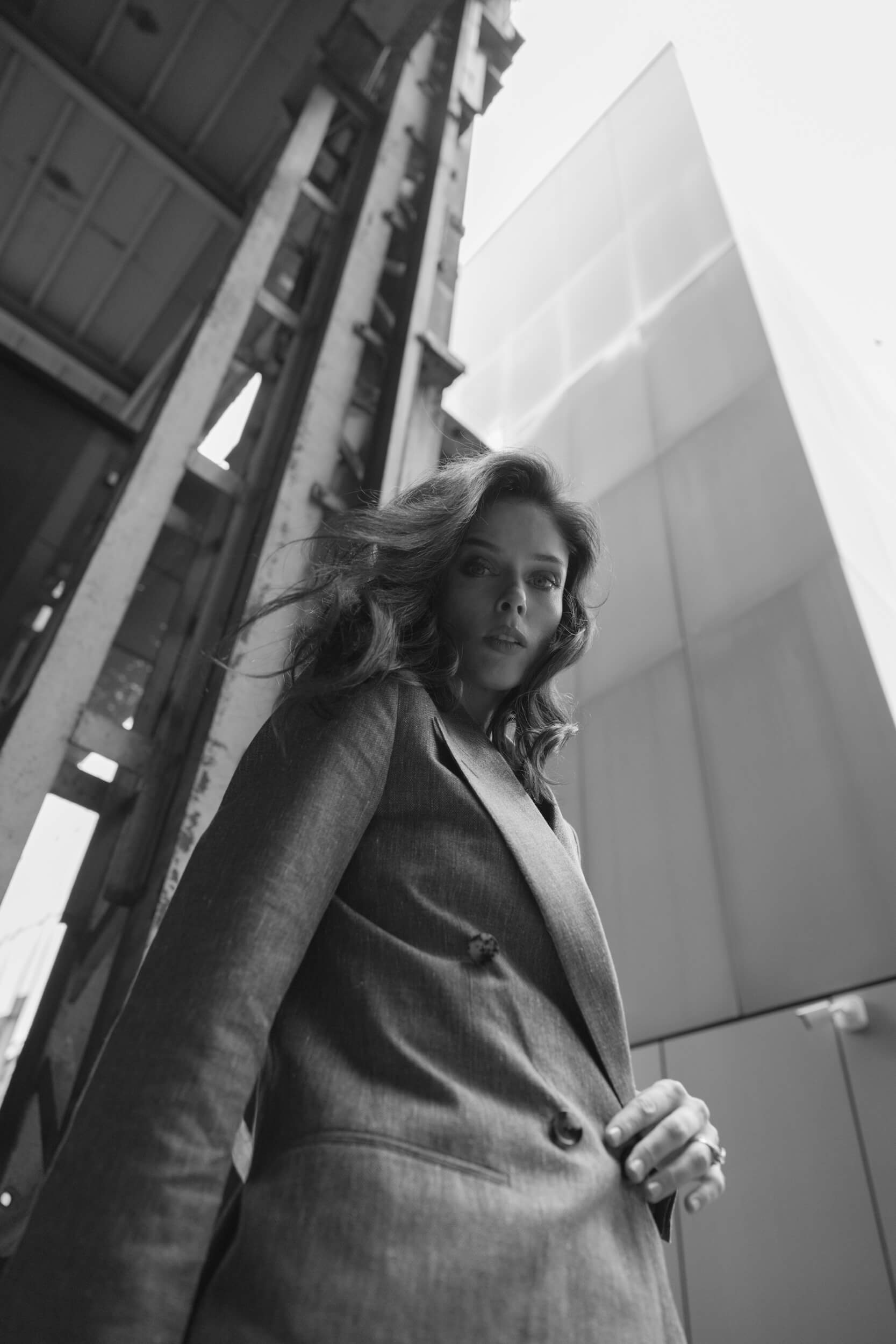
What’s your happy place?
I look at my career – it’s been 20 years this summer – and I’m only 35, which I think is young, but being married already for so long, having children, I realize that of all the covers and shows that I’ve done, none has not made me happy, but the happy part is the relationships that I’ve met. When I walk into a room and there’s my best friend that I’ve met back in the day, or to see my kids thrive because they have this life, because we built this life for them, that’s my happy place. It really is collectively the people I surround myself with: I love to laugh, I love to have fun, and I think my next chapter is about family. We’re building a home, this house is where I hope our kids bring their friends, and we get to have the best memories, and I hope that these little people that we’ve already created and are so special continue to be these confident human beings with the same purpose that I train people in the industry to feel: that’s my happy place, when I see they come home and say they dealt with the bully, or they went on stage and performed, or they’ve been able to play an instrument… It makes me feel so happy that they are jumping over these hurdles that maybe little me never felt like she could do.
You’re not supposed to live through the life of your kids, but I am at that point where I am so happy when I see that they’re killing it, and we’re able to be there and support them.
Photos by Johnny Carrano.
Makeup by Loris Rocchi.
Total Look: Loro Piana.
Thanks to Women Management Milano.



